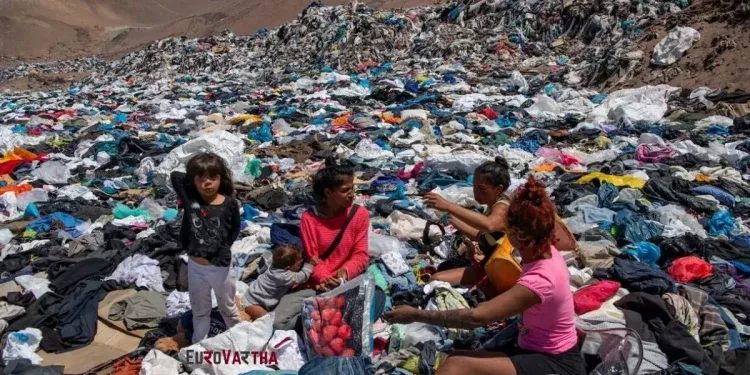Ireland is grappling with a severe textile waste crisis, consuming clothing at more than double the European Union (EU) average and struggling to cope with the sheer volume of discarded garments. The National Centre for the Circular Economy has warned that significantly more resources and infrastructure are necessary to manage this problem sustainably.
The Rediscovery Centre in Ballymun estimates that Irish people consume about 53 kilos of textiles per person annually, compared to the EU average of 19 kilos. This alarming rate of consumption results in an estimated 70,000 tonnes of textiles, including footwear and accessories, being dumped into landfill or incineration every year.
Key Challenges and New Obligations
- Infrastructure Gap: CEO Claire Downey of the Rediscovery Centre emphasized that even if all discarded textiles were collected separately, Ireland lacks the sorting capacity to handle 70,000 tonnes, necessitating immediate investment in facilities.
- New EU Directives: Ireland is now subject to two new EU obligations:
- Mandatory Separate Collection: In force since January this year.
- Producer Responsibility Scheme (PRS): Required since October, this scheme will make producers financially responsible for the end-of-life management of their products.
- Focus on Reuse: The challenge is to properly channel collected textiles into reuse and repair in Ireland, rather than relying on export, downcycling, or disposal.
The Work of Recycling Facilities
Facilities like Liberty Recycling in Bluebell, South Dublin, are on the frontline, processing over 100 tonnes of textiles weekly. Manager Tom Sheridan noted that they carefully sort items for suitable markets, with about 8% sold in their nine shops, 45% sent to African markets, and 50% to Asian buyers. He stresses that nearly all incoming items are in “perfect condition” and that none of this material should end up in landfill or incineration.
The new EU directive mandates all member states to properly sort textiles intended for recycling, a move aimed at preventing unusable waste from being shipped overseas.







